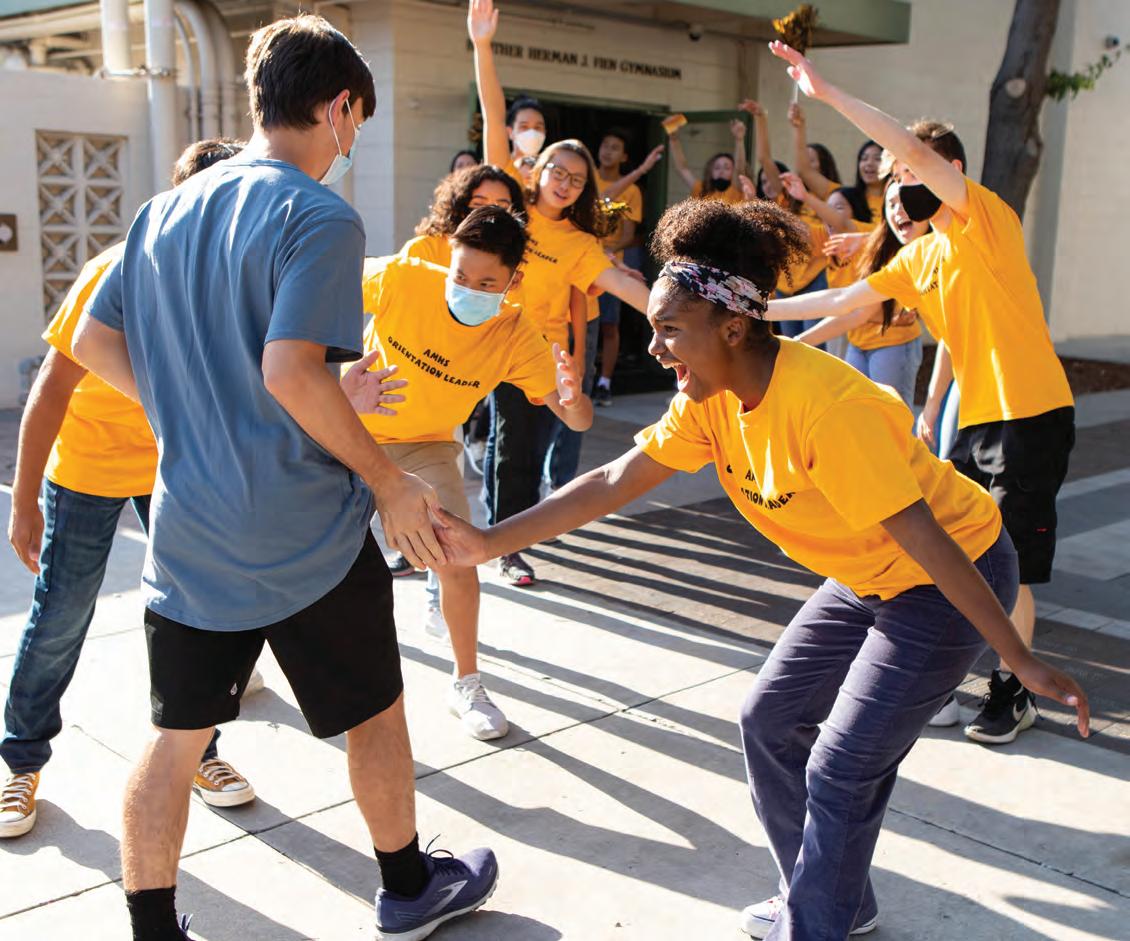3 minute read
Solidaridad: The Glue that Binds Us Together
SOLI DARI DAD!



Solidaridad: The Glue that Binds Us Together
By: Bea Scott - Spanish and Religious Studies Teacher & Academic Resources Coordinator
“Not again.” These words settled in with sadness once I realized in March of 2021 that, for the second year in a row, due to the pandemic, we would not be bringing students on immersion trips. I was disappointed and heartbroken. For students in Ethics, Culture and Justice classes and those signed up for co-curricular immersion trips, it was yet another disappointment after a year of missing and mourning countless opportunities.
After a few conversations with Joe Connelly of the Center for Global Education and Experience, who has worked with us to plan our Central America trip since 2017, I presented the idea of a virtual immersion trip to Jamie Visser, our Immersion Coordinator, and Tim Wesmiller, our Director of Campus Ministry. The four of us worked to come up with a schedule and theme. Joe organized speakers from El Salvador, Guatemala, Nicaragua, and Costa Rica, including theologians, activists, historians, artists, pastoral workers, and leaders of non-profit organizations.
Because of Zoom fatigue, I was skeptical of how it would work— students in the Chapel watching the projector screen, students at home on Zoom, Joe and speakers on Zoom. Would we still be able to make connections and forge those relationships of solidarity that are so powerful on immersion trips? It would not be the same as stepping outside of our physical comfort zones and immersing ourselves in a totally different reality, having to speak a different language, deal with physical discomfort, and eat different foods. Yet, something special happened over the course of those four days.
In a normal year, students often ask, “What service will we be doing on our trip?” I tell them that our trip is focused on standing with the communities we meet, listening to them, and then advocating for them upon our return. As Father Greg Boyle of the Society of Jesus, writes in his book, “Tattoos on the Heart,”
the goal is “Kinship—not serving the other, but being one with the other. Jesus was not ‘a man for others’; he was one with them. There is a world of difference in that.”
While there is a value in doing physical work to help others, and we encourage this in our service learning program, it is not the main focus of immersion trips. Since much of the power of the trips comes from the seemingly small interactions that happen over the course of our time there: playing with children, going to Mass with the community, visiting the elderly, immigrants, and activists and listening to their stories, I worried that we would not be able to tap into those connections.
That turned out to be an unfounded fear. The amazing passion of our presenters came through the screen and animated our students to ask excellent questions and make powerful connections. They inspired us with their example, their work with people on the margins and their challenging stories of hope and perseverance. One of our speakers, Antonio, went on vacation in Nicaragua and stayed and started Café Sonrisas where he employs blind and deaf employees. Another speaker, Gabriel, created art to protest the killings and kidnappings of protestors in Nicaragua. Madelaine, another speaker, stood up to the dictator in Nicaragua and proclaimed the names of those who had been killed in the violence of 2018. Another standout was Sister Peggy O’Neill of the Sisters of Charity of Saint Elizabeth, who has lived and worked in El Salvador for over 35 years. She had us say “solidaridad” aloud in Spanish and told us “Solidaridad means you become aware that
people who aren’t even close to you are connected to you… Solidarity is the glue that holds us all together, that
connects us.” What a gift to be able to connect virtually to this power that binds us all together.
The Mitty tradition of impactful and life-changing immersion trips is alive and well and adapting to all the challenges thrown at us by viruses and changing realities in the countries we visit. Regardless of what happens in 2022, we will find creative and engaging ways to stand with our brothers and sisters around the world.






